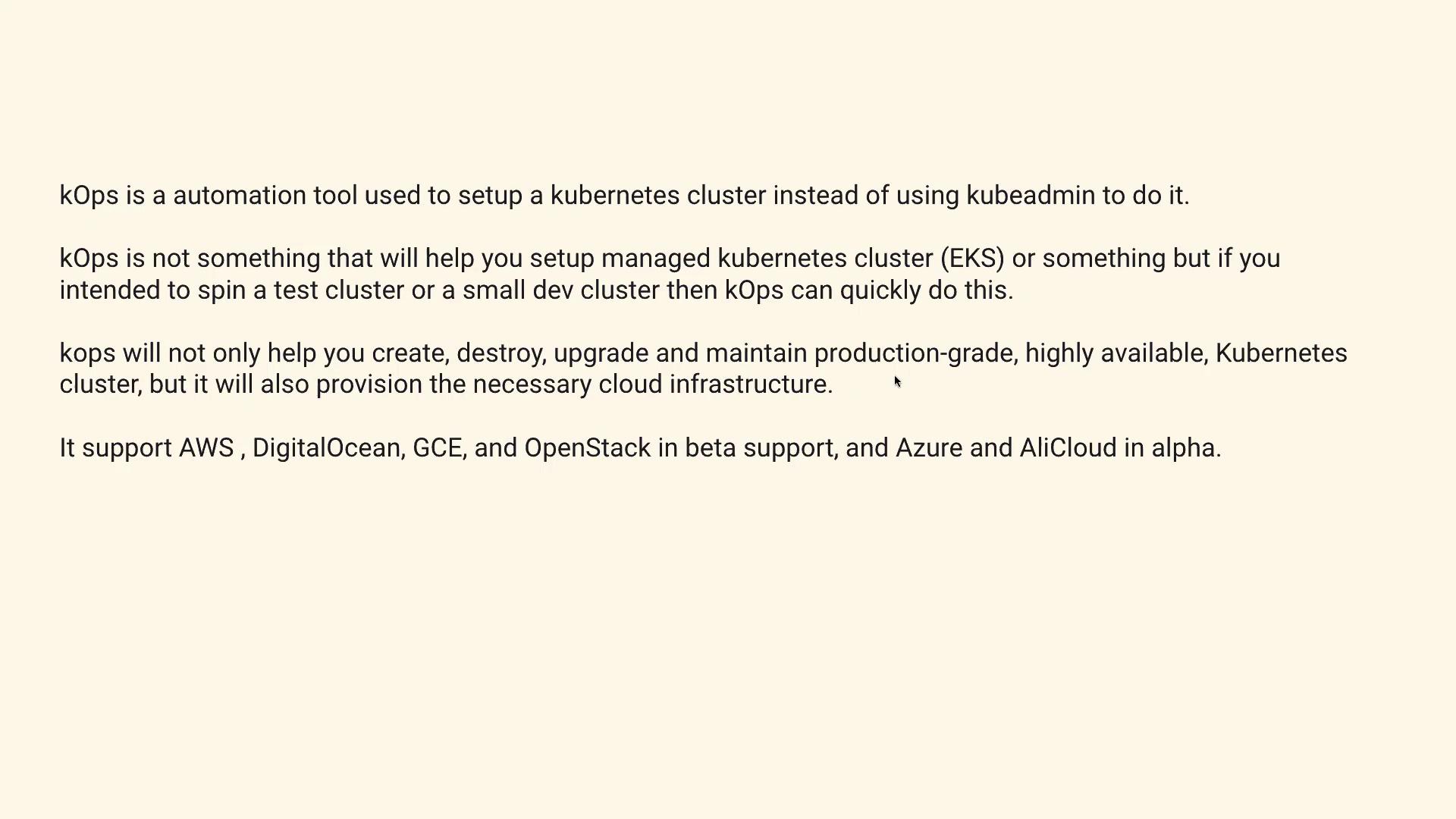What is Kubernetes Kops?
Kops is a powerful automation tool designed to simplify the deployment and management of Kubernetes clusters on various cloud platforms, such as AWS, Google Cloud, and DigitalOcean. It streamlines the entire process from cluster creation to integration with cloud-specific services, making it a popular choice for both development and production environments. Kops excels by managing not only the initial Kubernetes cluster set up but also by integrating seamlessly with essential cloud services. For example, when deploying a Kubernetes cluster on AWS, Kops automates interactions with:- Amazon EC2: For provisioning virtual servers.
- Amazon EBS: For managing storage volumes.
- Auto Scaling Groups (ASG): For scaling the number of nodes dynamically.
- Route 53: For DNS management.
Kops is particularly useful when you need to rapidly create a test or development Kubernetes cluster, or even for load testing and experimenting with different configurations.
Key Features of Kops
- Automated Cluster Setup: Simplifies the process of deploying Kubernetes clusters in cloud environments.
- Cloud Service Integrations: Ensures smooth connections with cloud providers like AWS by managing EC2, EBS, ASG, and Route 53 setups.
- Full Lifecycle Management: Provides tools to create, upgrade, maintain, and destroy clusters as per your evolving needs.
- Flexibility: Ideal for development, testing, and load testing scenarios when managed Kubernetes services (such as AWS EKS) are not in use.
Interview Answer Example
When asked about Kops in an interview, you can respond with: “Kops is an automation tool that allows me to set up a Kubernetes cluster on a cloud account. It automates the complete setup process, including integrations with cloud services, and provides functionalities to destroy, upgrade, and maintain clusters. I typically use Kops to quickly establish development or testing clusters, especially in scenarios where managed Kubernetes services are not available.”